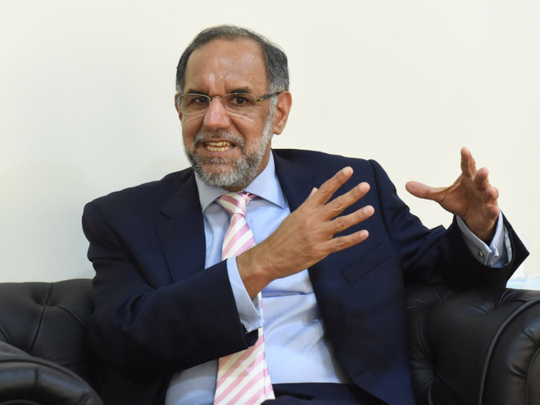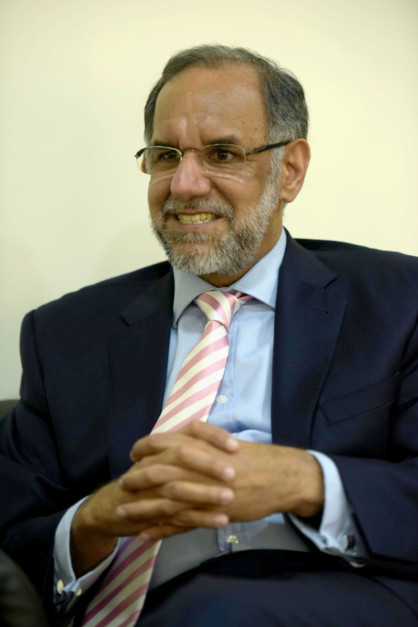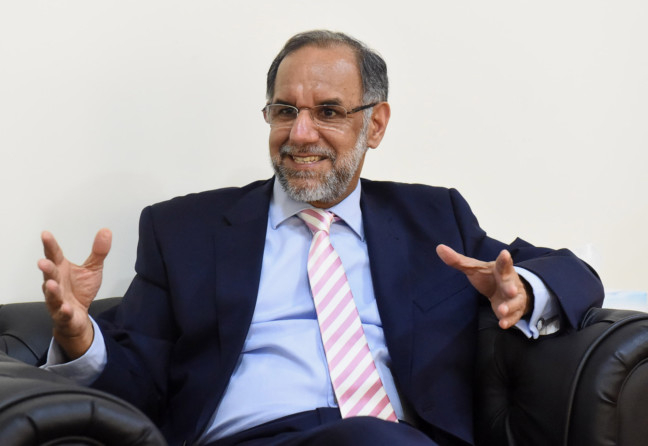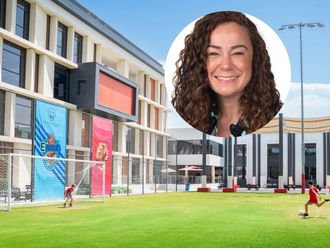
Abu Dhabi: Engaging with the large Indian community in the UAE is a challenge as well as an opportunity, said a top Indian diplomat.
“It is a pleasure meeting so many brothers and sisters from India. Some may be facing some problems but many are thriving here. Indians are the most preferred community in the UAE,” Navdeep Singh Suri, the Ambassador-designate of India to the UAE, told Gulf News in an interview on Thursday at the Indian Embassy in Abu Dhabi. This was his first media interview after assuming office last week.
He was sharing his views informally as he was yet to submit his credentials with the UAE Government, although a copy was submitted last week.
An estimated 2.6 million Indians constitute the largest expatriate community in the UAE.
About the blue-collar workers who constitute around 65 per cent of the Indian community, Suri said: “Definitely we have to reach out to them. We have to understand their problems. I will try to engage with them wherever I can.”
He said Indian Workers Resource Centre (IWRC), a support centre for workers, is a an important arm of the embassy.
The envoy said he was looking forward to engaging with the community. “At the same time I have to remind myself about the priority of engaging with the UAE Government. When you have a large community as we do, you have to strike a balance. We have only 24 hours and 7 days a week.”
Suri said his focus had to be in the diplomatic relations “with the UAE Government, with the top leadership in each of the emirates, top levels of civil service and bureaucracy, major sections of the media and top echelons of the Emirati business community. All these segment also deserve attention, especially at this crucial juncture.”
As a professional diplomat, he said, he would be last person to neglect that aspect. He said he would delegate to other senior diplomats also his engagements with the community.
Suri plans to use social media to engage with people in future. Now, he wants to focus on a major task ahead — His Highness Shaikh Mohammad Bin Zayed Al Nahyan, the Crown Prince of Abu Dhabi and Deputy Supreme Commander of UAE Armed Forces’s visit to India next month as the chief guest on the Indian Republic Day on January 26. “It will take us to the next level. People who have a stake in the relations are going to be appreciative of what will be accomplished [during the visit]. This is truly an exciting time in our relationship. I am privileged to be India’s ambassador here at this time.”
He said, in the past, both sides had talked about lost opportunities. The momentum created after the visit of Indian Prime Minister Narendra Modi to the UAE and the subsequent India visit of Shaikh Mohammad Bin Zayed, would be increased exponentially with this impending visit. He said three state visits in around 18 months was a great development as there had been none for many years in the past.
Suri said many Indian officials in New Delhi were working hard on the UAE-India Infrastructure Investment Fund to make it a commercially viable initiative. The fund with a target of $75 billion (Dh275.47 billion) was created during Modi’s UAE visit.
Antiterrorism was a significant area of cooperation between the two countries, he said. About the UAE’s strategic petroleum reserve project in India, discussions were still on over a couple of minor issues, Suri said.
On India’s current role in the Middle East, he said: “The world at large and the region in particular is in a fairly fluid stage. You can see major shifts happening in relationships, in terms of alignment — between Russia and China, Egypt and Iran, etc. At this point of time, we are very carefully observing everything that is going on. We are by nature cautious and thoughtful when it comes to significant foreign policy decisions. We are watching all the developments, including the policy of the US towards the region.”
Sidebar
Talks on over increase in flights between UAE, India
By Binsal Abdul Kader
Senior Reporter
Abu Dhabi
The ongoing negotiations between Indian and the UAE to increase flights and share seats between both countries are expected to create a mutually beneficial arrangement, said Navdeep Singh Suri, the Ambassador-designate of India to the UAE, in an interview with Gulf News.
Asked about reported resistance in India to grant more routes to UAE carriers, he said: “Negotiations in this area are often a quid pro quo. There is an expectation that Indian carriers — Air India and private carriers — also get the same access [as demanded by the UAE carriers],” he said.
About the new trends in diplomacy, Suri said the days of traditional diplomacy, which largely speaks in terms of government-to-government relations, were over and cultural diplomacy could play a major role to build strong bridges in relations. “I do believe in the power of cultural diplomacy in the power of public diplomacy,” he said.
Suri said the absence of cultural understanding had created suspicion of the unknown in many societies. “[Even] you can occasionally have paranoia. You see manifestation of that in several countries around the world today. I think by investing in cultural diplomacy in public diplomacy you are making the investment for future relations.”
“We live in an age where there are multiple channels of communications and multiple actors in the formation of foreign policy. And you need to reach out to different segments, to the extent that you can use cultural diplomacy to foster trust and greater understanding,” said Suri, the grandson of Nanak Singh, who was known as the father of the Punjabi novel. Suri has translated two novels written his grandfather in Punjabi into English.














